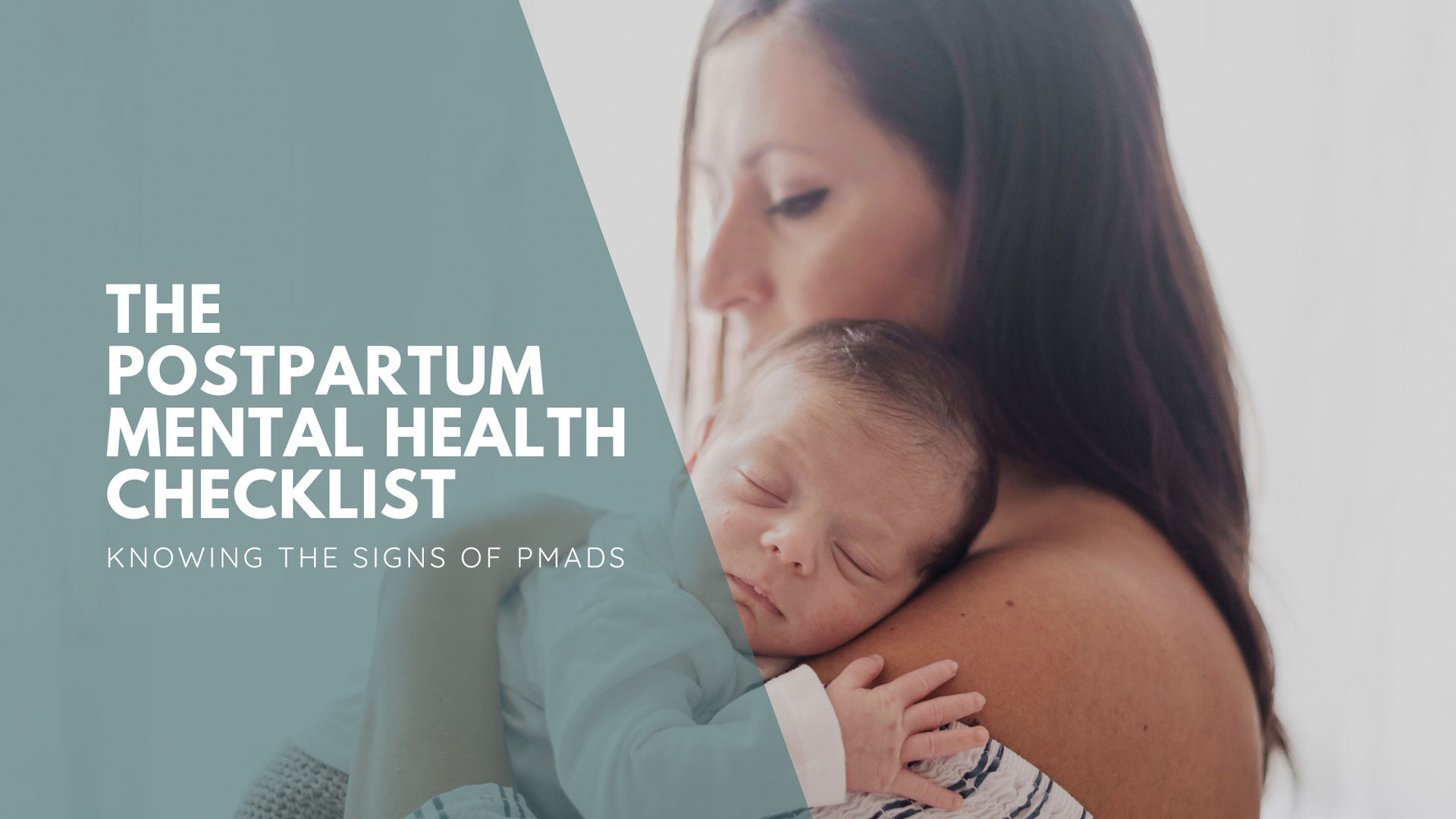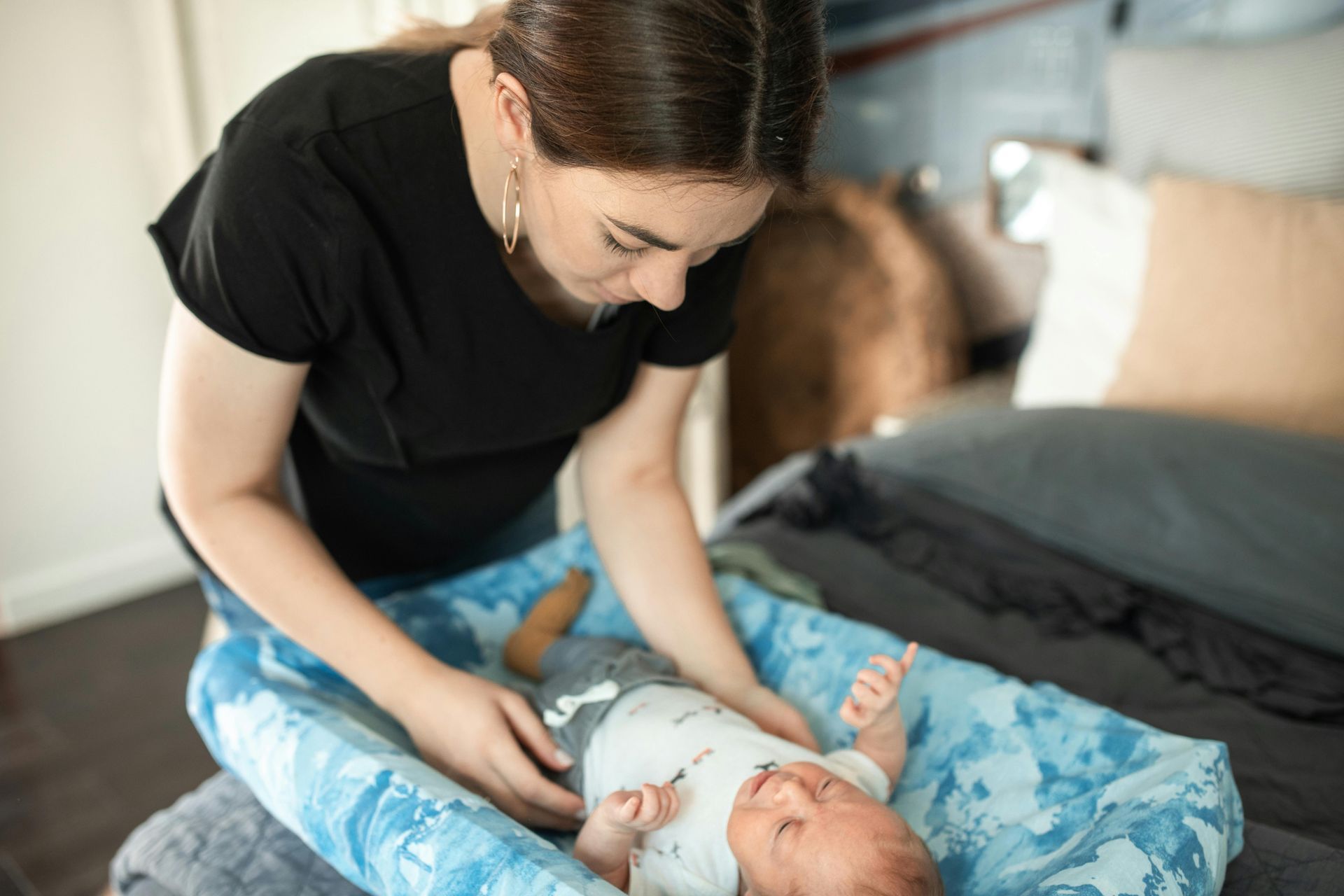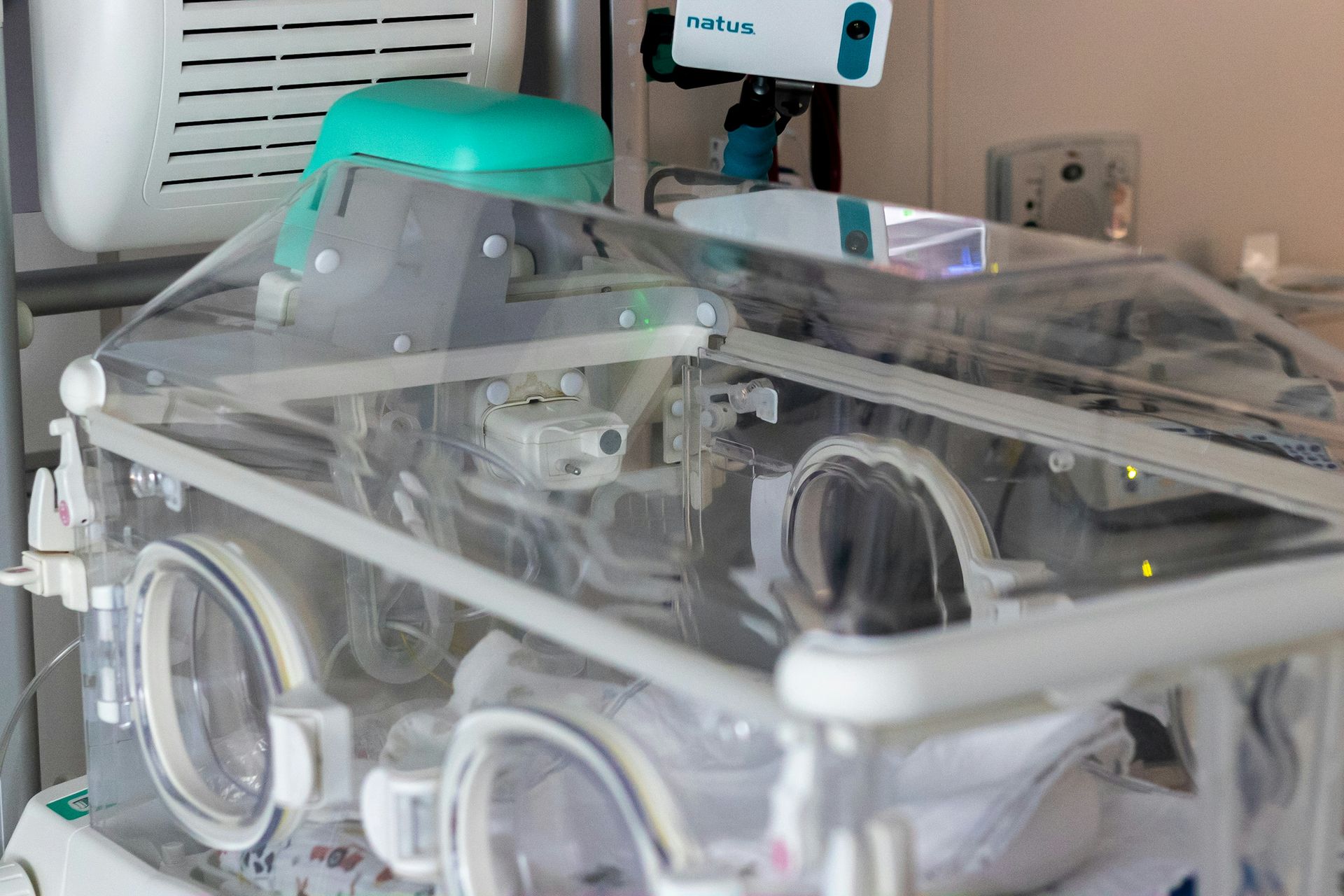The Postpartum Mental Health Checklist: Knowing the Signs of PMADs
The Postpartum Mental Health Checklist: Knowing the Signs of PMADs

Let’s be honest: postpartum mental health isn’t talked about enough. You’re adjusting to a new identity, not getting enough sleep, healing from birth, and keeping a tiny human alive. And while that love-at-first-sight story is sweet, it’s not everyone’s reality. And that’s okay.
It doesn't mean you're failing if you’re feeling off, unsure, or overwhelmed. It might be a sign of a PMAD (Perinatal Mood and Anxiety Disorder). Let’s break it down so you can recognize the signs, get the support you need, and keep showing up for yourself and your family.
What Are PMADs?
PMADs stands for Perinatal Mood and Anxiety Disorders. This refers to a range of mental health conditions that can show up during pregnancy or after your baby is born. It includes postpartum depression, anxiety, OCD, PTSD, and a rare condition called postpartum psychosis.
These experiences can affect how you feel, think, and cope with daily life, especially when everyone expects you to glow with joy. The truth is that PMADs are common, treatable, and nothing to be ashamed of. Knowing the signs and getting support early on can make a big difference.
Your Postpartum Mental Health Checklist
This isn’t a test. It’s a check-in. Be honest with yourself, and if something here feels familiar, know that help is available and you’re never alone.
1. Emotional Red Flags
- You cry often, and not just from hormones or exhaustion.
- You feel numb, disconnected, or like you're going through the motions.
- You’re overwhelmed by guilt, hopelessness, or a sense that you're not a good parent.
- You have scary or intrusive thoughts that don’t feel like “you.”
2. Physical + Behavioral Clues
- You’re not sleeping, even when your baby sleeps.
- You’re avoiding eating or using food as the only comfort.
- You have zero motivation or interest in things you used to enjoy.
- You feel jittery, panicked, or constantly on edge.
3. Relationship Shifts
- You feel totally alone, even when surrounded by people.
- You're snapping at your partner or avoiding connection.
- You’re struggling to bond with your baby (yes, this is more common than you think).
- You’re struggling to communicate with your partner, and even small disagreements feel like bigger issues.
When It Might Be More Than “Baby Blues”
The baby blues usually fade after two weeks. If symptoms persist or feel intense, it could be postpartum depression, anxiety, OCD, or even PTSD. These are all forms of PMADs, and all of them are treatable.
What You Can Do
You don’t have to figure it all out alone. If you check off a few boxes on this list, here are some real next steps:
- Talk to someone you trust, whether that’s a partner, friend, or therapist.
- Connect with a postpartum doula. We’re trained to see you and support you through the hard times.
- Reach out to your provider. They can screen for PMADs and connect you with the right help.
You Deserve to Feel Like Yourself Again
PMADs affect 1 in 5 new parents—sometimes more. This isn’t rare, and it’s not forever. You are
not broken, and you are absolutely not alone.
PMADs don’t make you a bad parent. They make you a human who needs support. Asking for help is a sign of strength, not weakness.
FAQ
Q: How do I know if it’s just baby blues or something more serious?
The “baby blues” are super common and usually peak around day 4–5 postpartum, then fade by the two-week mark. If your symptoms stick around after that or feel intense, disruptive, or scary, it could be a PMAD.
Q: Can partners experience PMADs too?
Yes! Partners and non-birthing parents can experience postpartum depression, anxiety, and stress-related disorders. No one is immune to the mental load of new parenthood.
Q: What should I do if I think I have a PMAD?
Tell someone how you're feeling, whether it’s your OB, midwife, primary care provider, or doula. You can also contact Postpartum Support International (PSI) for a referral or helpline support.
And remember: there’s no shame in needing help. Reaching out is the first step to feeling better. By taking this step, you are showing strength and resilience in the face of a challenging situation.
Q: How can a postpartum doula help with mental health?
A postpartum doula offers nonjudgmental support, practical help, and a listening ear. We can spot early signs of PMADs, hold space for your emotions, and help you rest, recover, and reconnect with yourself, your baby, and your support system. Sometimes, having someone in the room who truly gets it makes all the difference.
Need Support Right Now?
At Bountiful Doulas, we’re not just here for the diapers and feeding tips. We’re here for you. We've got your back, whether it’s emotional check-ins, practical support, or connecting you with local resources.
Reach out today to learn how postpartum doula care can improve your healing and confidence.
You’re doing more than enough. And we’re here to help you feel that too.












